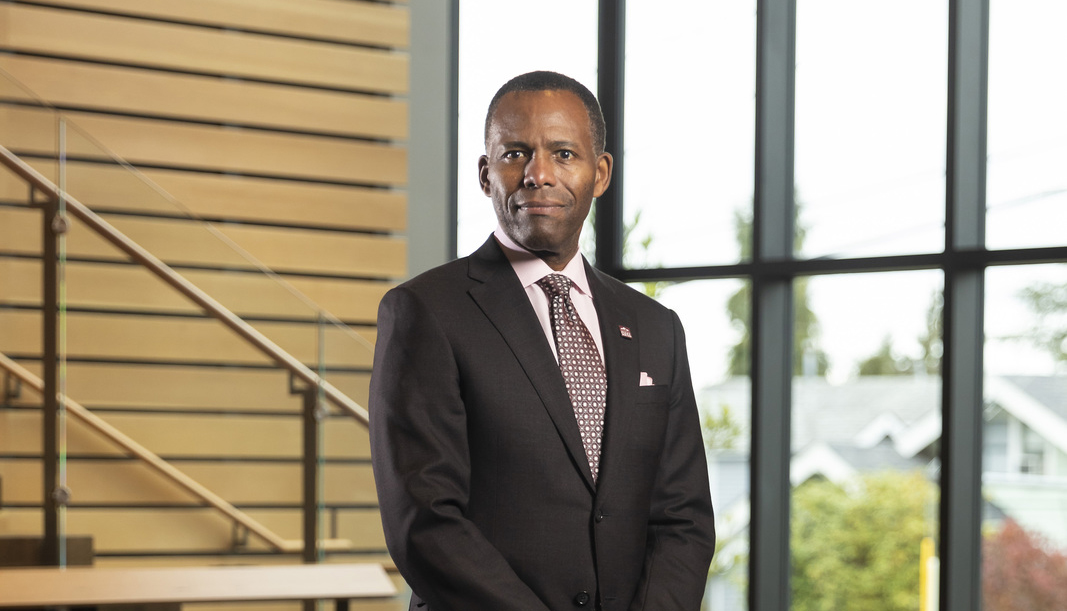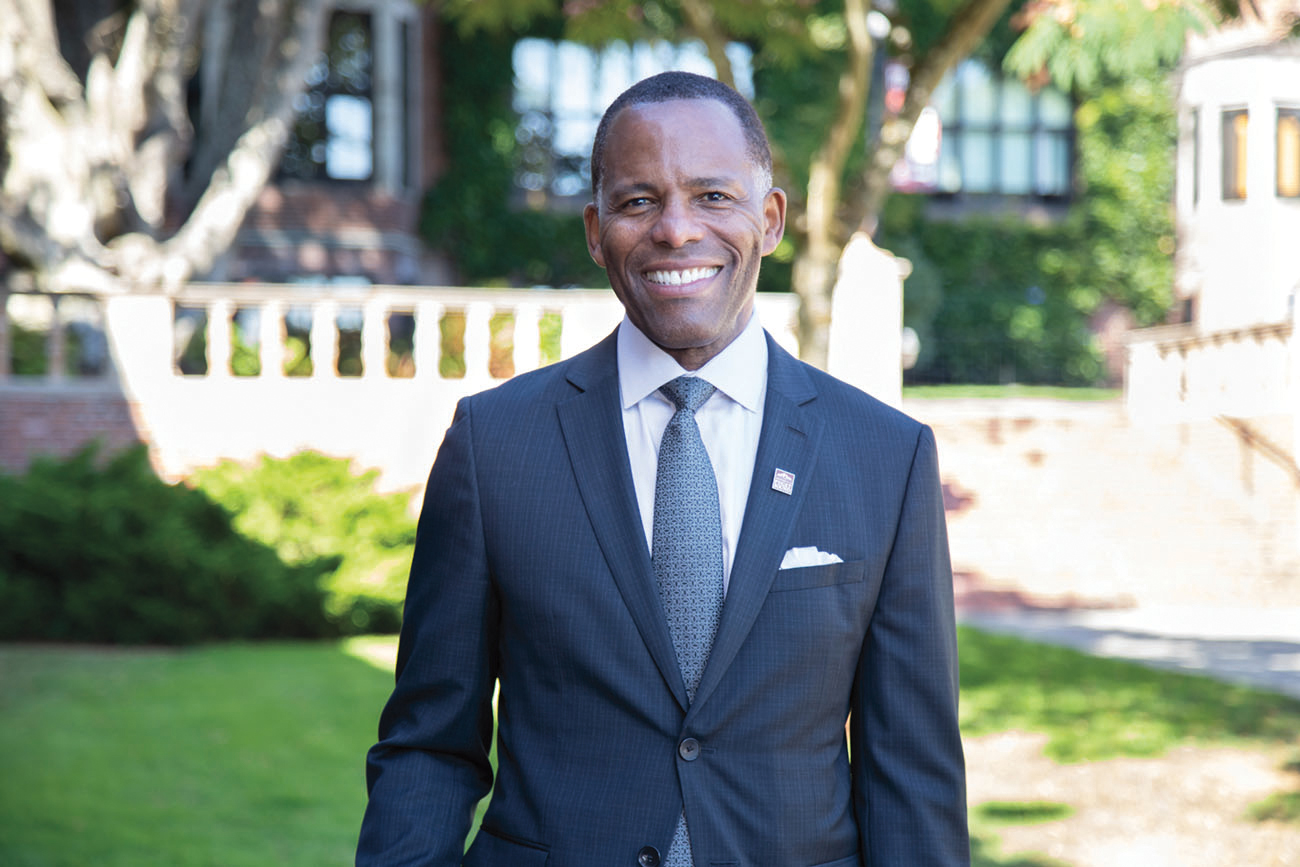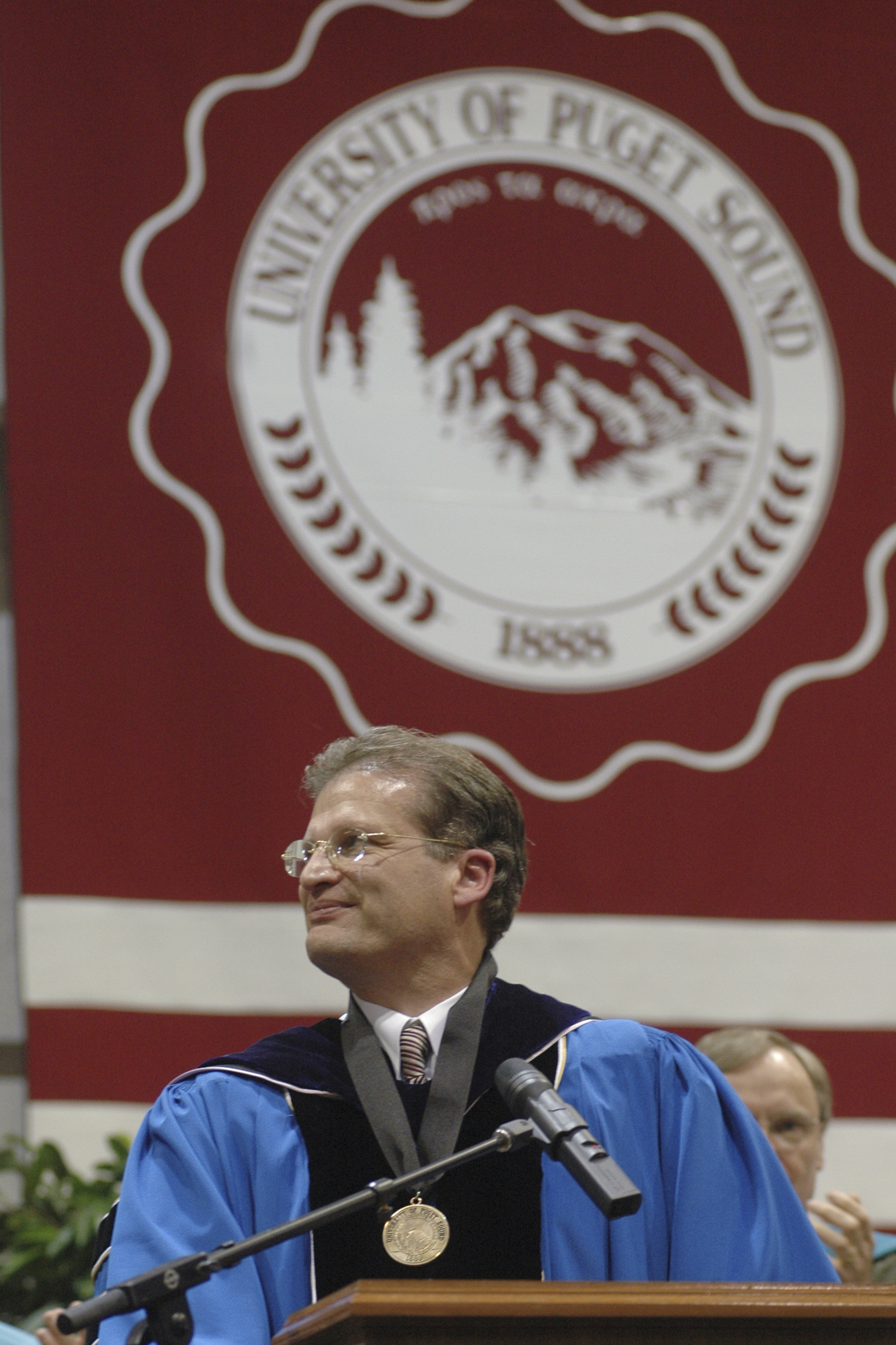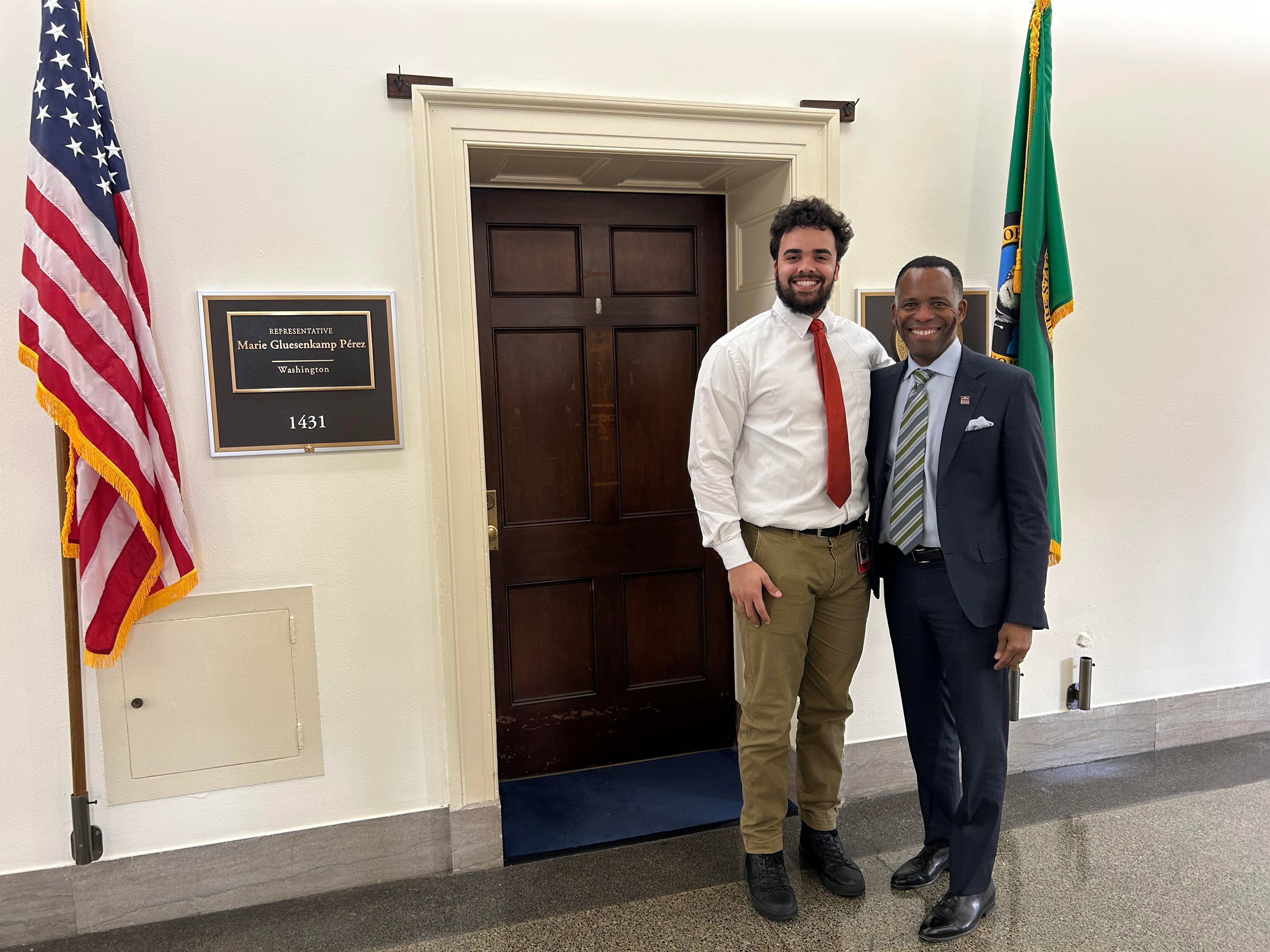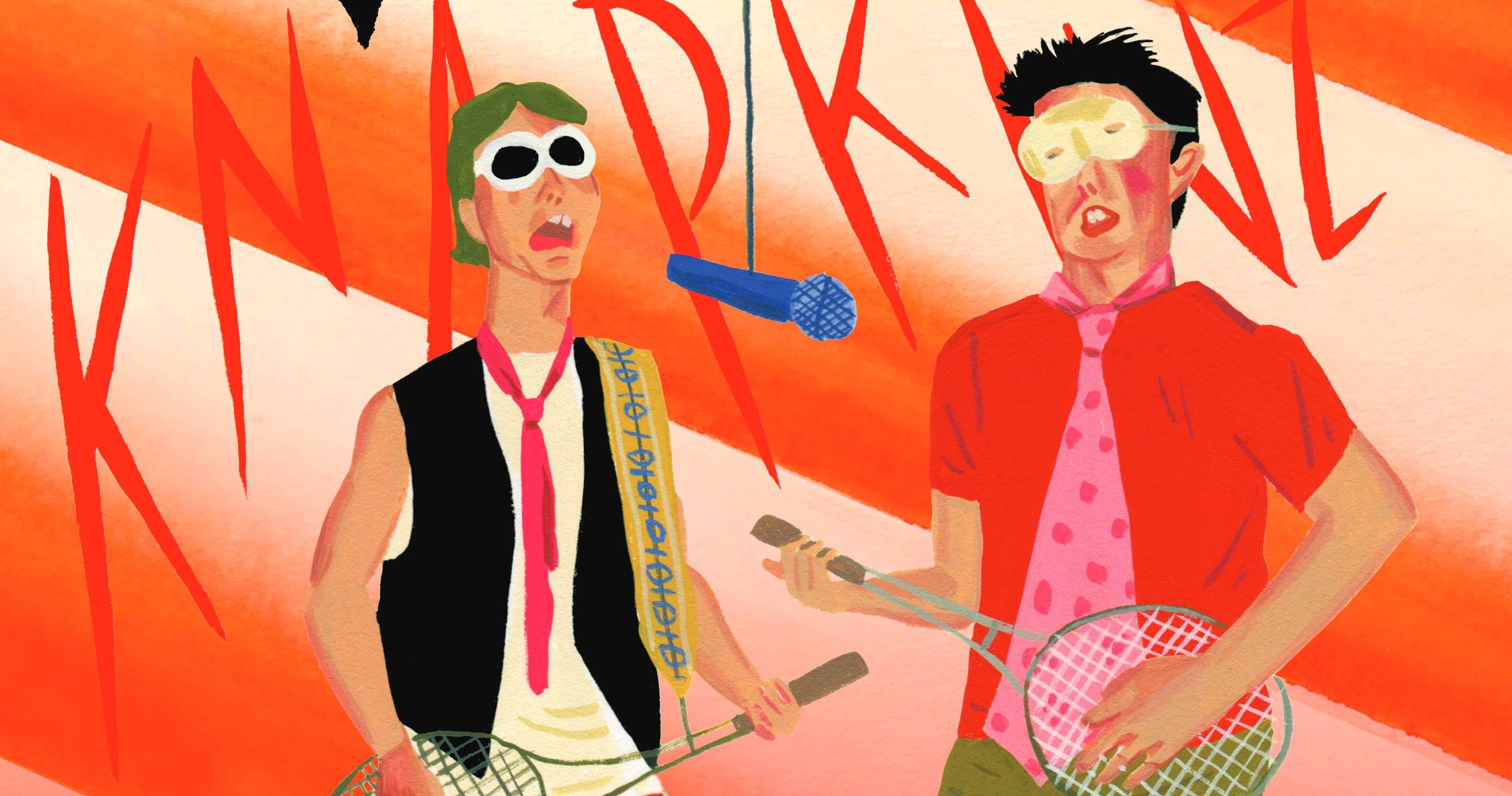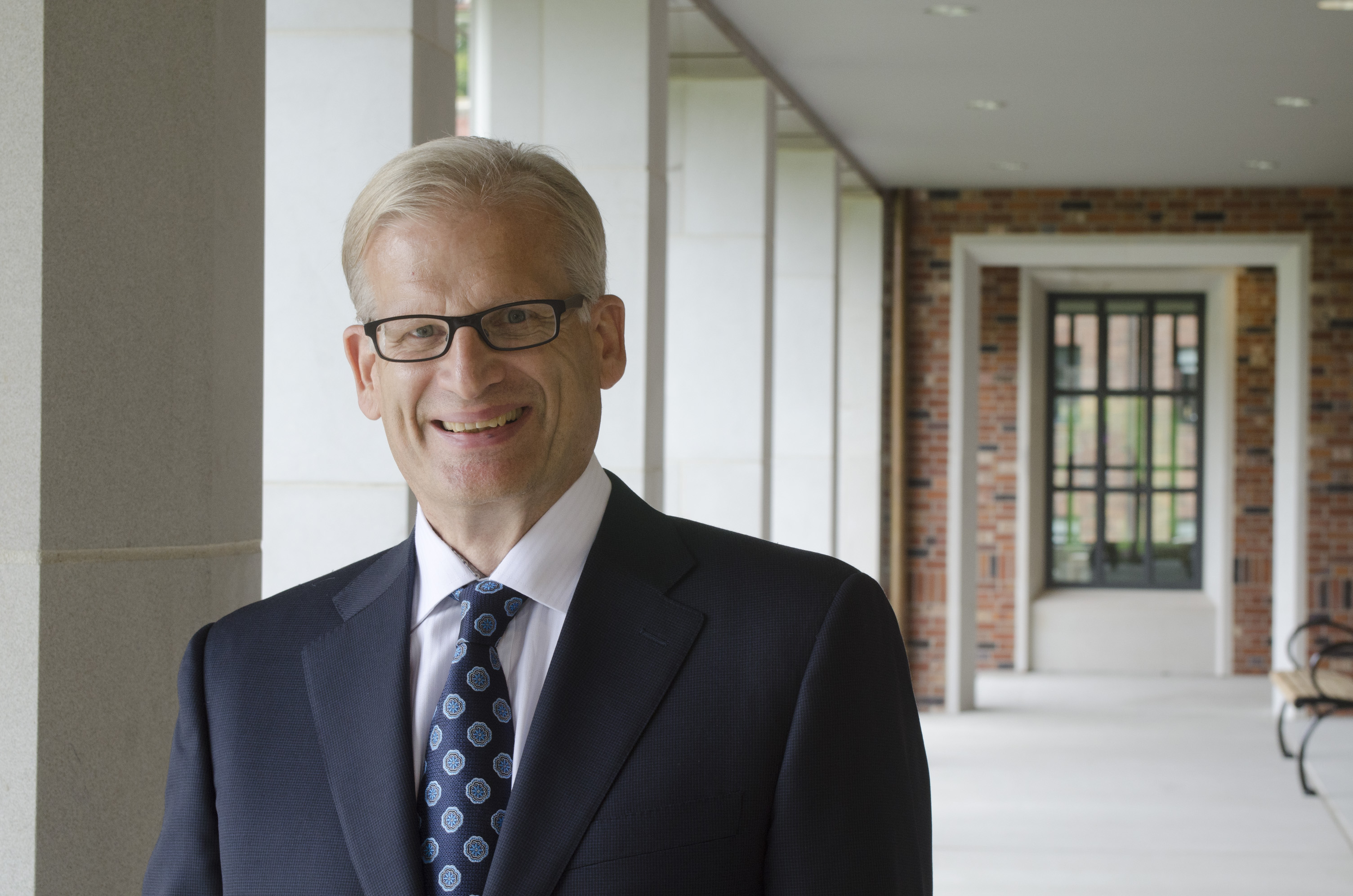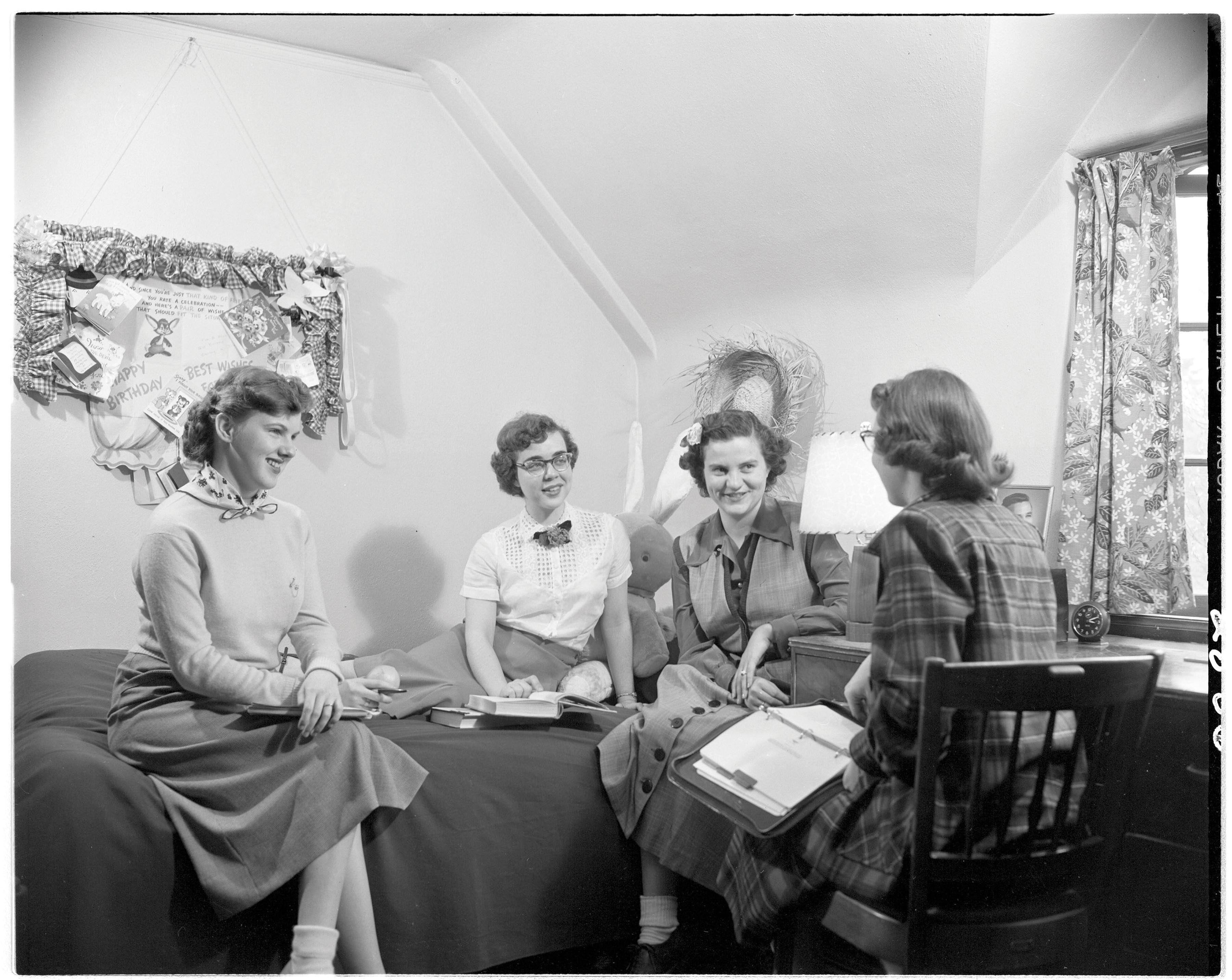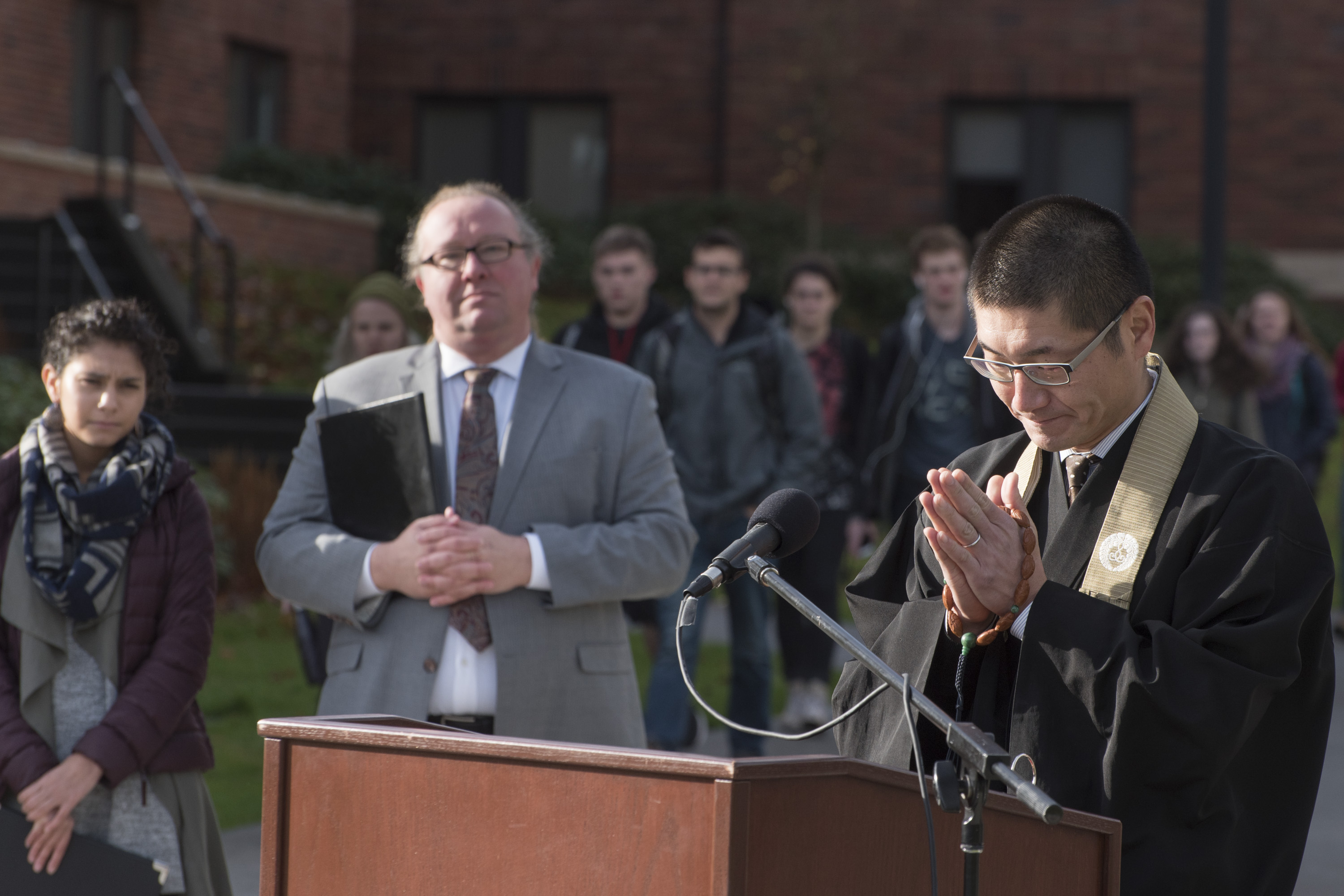From the President: Isiaah Crawford on affordability and other issues facing higher education nationally.

You’re currently chair of the board of the National Association of Independent Colleges and Universities. What’s that experience like?
I’ve thoroughly enjoyed it. It has, at times, felt like another job, if you will. But I’m honored to serve, to represent our sector of independent colleges and universities, and to make a contribution to the national dialogue around higher education policy. It’s also been fascinating to learn more at a deeper level about our political process, how federal legislation is brought forward, and how it gets approved.
How has it informed your role as the president of University of Puget Sound?
It’s really helped me think about the larger picture and its influence on the university, as well as how the university can best position itself for continued success. It’s important to continue to be student focused, mission driven, and clear about your strategic aims—and be flexible and adaptive to the moment that’s in front of us, in terms of the pandemic.
Affordability is one of the top themes that NAICU is focused on, correct?
Very much so. NAICU focuses on promoting higher education access and affordability for the nation’s young people and continuing learners, as well as broader policy issues that impact higher education. A major theme is providing students with the opportunity to select the schools that are most suited for them—“goodness of fit.” And that’s what we believe is most important: that there is a college or university out there for you, that is the best fit for you, and we want to help make sure you can find it, have access to it, and be successful in your endeavors.
Specifically, NAICU would like to see the maximum Pell Grant award doubled. What are the prospects for that?
Well, there are two aspects of this right now. We’re very focused on President Biden’s “Build Back Better” plan, because it’s a first step—it includes funding to increase the maximum Pell award—currently $6,495—by $550. We are very excited about that and hope that President Biden and the Senate will be able to reach an agreement and to move it forward. But NAICU’s larger hope is “Double Pell,” to bring the maximum award to $13,000—and that’s a goal that 75% of Americans support, according to one survey. When the Pell Grant was established in 1972, it covered the full cost of community college, the majority of a four-year public degree, and more than a third of the cost of a four-year private degree. But it hasn’t kept pace with inflation, and today the maximum Pell Grant covers the smallest share of college costs in the program’s history.
Closer to home, how has the school fared in terms of making a University of Puget Sound degree more accessible and affordable?
I’m happy to share that this year, we were able to cross the $56 million threshold in terms of institutional aid that we provide to students, directly from our resources. We’ve also been very focused on doing all that we can to be efficient and effective, to lower our costs where we can. And that has allowed us to have the most modest tuition increases in the history of the university in recent years. In terms of financial aid, my hope is that one day, the university will be able to meet all demonstrated need for its students.
What does it mean to meet “all demonstrated need”?
When a student files a FAFSA—the Free Application for Federal Student Aid—which allows you to determine what financial aid may be available and what the expected family contribution might be, we would be able to meet the gap. So when the algorithm says the family should pay X amount, it would be my hope one day that the university could cover the balance for them through scholarships and other aid.
You mentioned in your welcome remarks at the beginning of the spring semester that you want to catapult the university into the top 50 of liberal arts colleges in the country. How does that happen?
Some of it will come from the additional work we’re going to do to promote the success of our students through graduation. We do well, but the more students we can make sure complete their studies here and be launched out into the world, the better. The other component is telling the good story about University of Puget Sound—making sure that we are no longer a “hidden gem.” We have to promote ourselves in an assertive, full-throated manner—to extol the virtues and accomplishments of our graduates and of our faculty, and the contributions that our staff make. So much of the rankings, actually, is reputation. So we need to tell our story. We have a great story to tell, we have all of the outcomes necessary to be among the top 50 residential liberal arts colleges in the United States. We just have to tell the world about it in a more assertive fashion.
